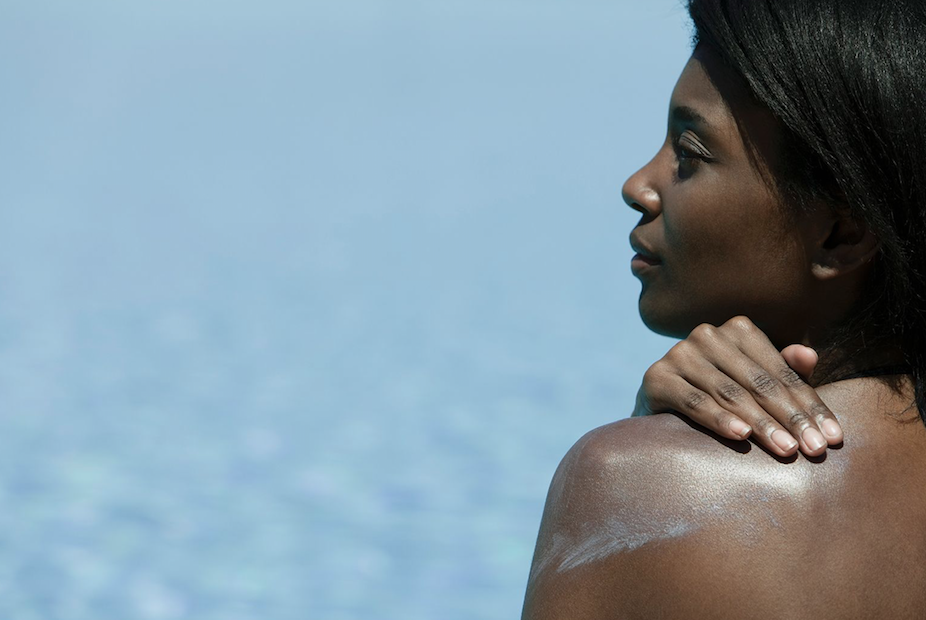There is a common misconception that people with dark skin tones don’t get sunburned. However, anyone that is exposed long enough to sun without protection can get sunburned which can ultimately lead to skin cancer. Additionally, it is difficult to detect sunburns on darker skin even though the skin has been sun damaged. With this being said, people of all skin types need to wear sunscreen to protect their skin. Individuals with darker skin have higher levels of melanin which translates to increased protection from the sun so naturally they aren’t at risk of skin cancer like people with lighter skin.
If you’re interested in learning about how the sun affects your skin specifically, the Fitzpatrick Scale includes 6 classifications of skin types. The first skin type always burns in the sun but isn’t able to tan. Individuals with this type of skin have a very light complexion and have freckles. The second skin type may be able to tan a little but not easily. People with this skin type typically have light skin. The third skin type burns lightly and will develop a tan over time. People with this skin type have fair skin. The fourth skin type rarely burns but can tan very easily. Individuals with this skin type have brown skin. The fifth skin type like the previous classification rarely burns, however they tan much faster. This skin type has a dark brown complexion. Lastly, the sixth skin type never burns but they tan very quickly in multiple parts of their body. People with this skin type have black skin.
Like mentioned previously, it can be hard to detect sun burns on darker skin. This can be dangerous since cancer that goes undetected early on gets worse and ultimately results in death. Additionally, it is important to pay attention to possible symptoms that occur which can lead to a heat stroke. Some of the symptoms include headaches, dizziness, nausea, blistering, high temperature, shivering, or muscle cramps. If you have a darker complexion and are worried about sun damage, make sure to take preventative measures by scheduling regular checkups with your dermatologist or health care provider. Melanin alone can’t protect you fully form the sun’s powerful UV rays. Taking steps in your daily life to limit sun exposure such as avoiding peak sun hours (12PM – 4PM), seeking shade when possible, and wearing protective clothing can significantly decrease your chances of sun damage and skin cancer.

